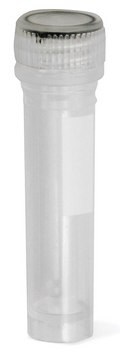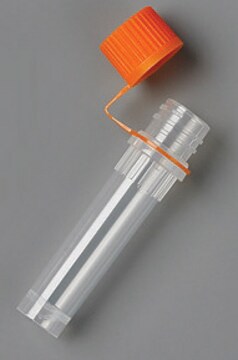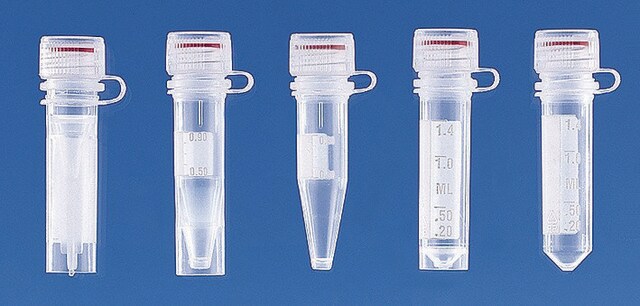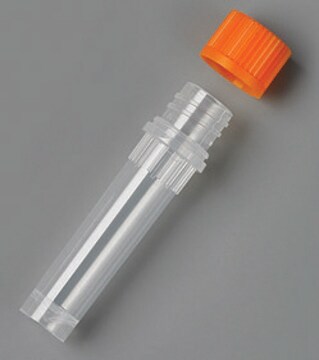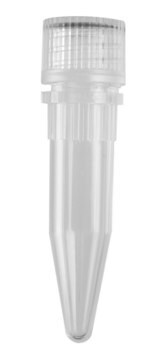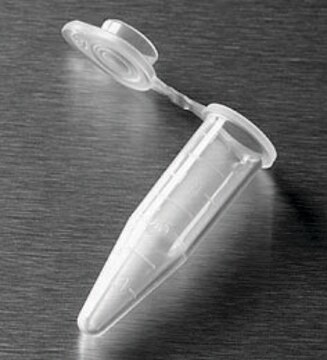CLS430909
Corning® microcentrifuge tubes with screw cap
1.5 mL microcentrifuge tube, polypropylene, w/ attached screw cap, w/ 0-ring, sterile, natural, 500/cs
Sinónimos:
centrifuge tubes, micrcentrifuge tubes, microfuge tubes, screw cap microcentrifuge tubes
About This Item
Productos recomendados
material
conical bottom tube
natural polypropylene tube
screw top cap
description
O-ring (black silicone, rubber O-ring in cap)
sterility
sterile
feature
self-standing: no conical bottom
packaging
pack of 50
case of 500
manufacturer/tradename
Corning 430909
parameter
20000 × g max. RCF
cap diam.
12.7 mm
capacity
1.5 mL
tube O.D.
10.7 mm
color
natural
fitting
cap (screw cap)
¿Está buscando productos similares? Visita Guía de comparación de productos
General description
- 1.5 mL polypropylene microcentrifuge tubes feature screw caps that provide a tight secure seal
- Attached cap with silicone O-ring
- Withstands a maximum RCF of 20,000xg
- Sterile
- Maximum RCF is 20,000
- No marking spot
Legal Information
Elija entre una de las versiones más recientes:
Certificados de análisis (COA)
It looks like we've run into a problem, but you can still download Certificates of Analysis from our Documentos section.
Si necesita más asistencia, póngase en contacto con Atención al cliente
¿Ya tiene este producto?
Encuentre la documentación para los productos que ha comprado recientemente en la Biblioteca de documentos.
Los clientes también vieron
Protocolos
The most common application for qPCR is the measurement of a gene transcript or copy number quantity relative to one or more reference genes using probe detection.
A protocol that can be used as a basic template for qPCR incorporating a detection probe that is specific to a single target. In these reactions, primers and probe are included at a final concentration of 200 nM and are run using LuminoCt® ReadyMix™.
A protocol that can be used as a basic template for qPCR incorporating up to four detection probes. In these reactions, primers and probe are included at a final concentration of 200 nM and are run using LuminoCt ReadyMix.
Primer Concentration Optimization Protocol is an approach to create a matrix of reactions. This is used to test a range of concentrations for each primer against different concentrations of the partner primer.
Nuestro equipo de científicos tiene experiencia en todas las áreas de investigación: Ciencias de la vida, Ciencia de los materiales, Síntesis química, Cromatografía, Analítica y muchas otras.
Póngase en contacto con el Servicio técnico